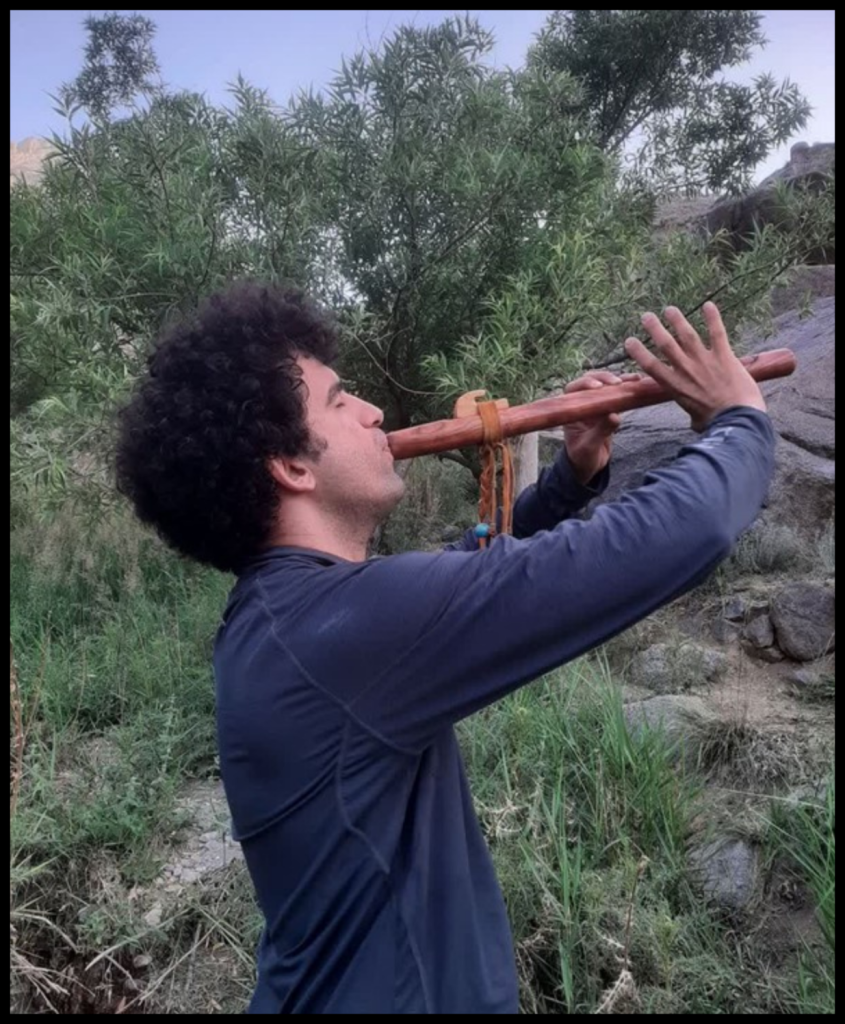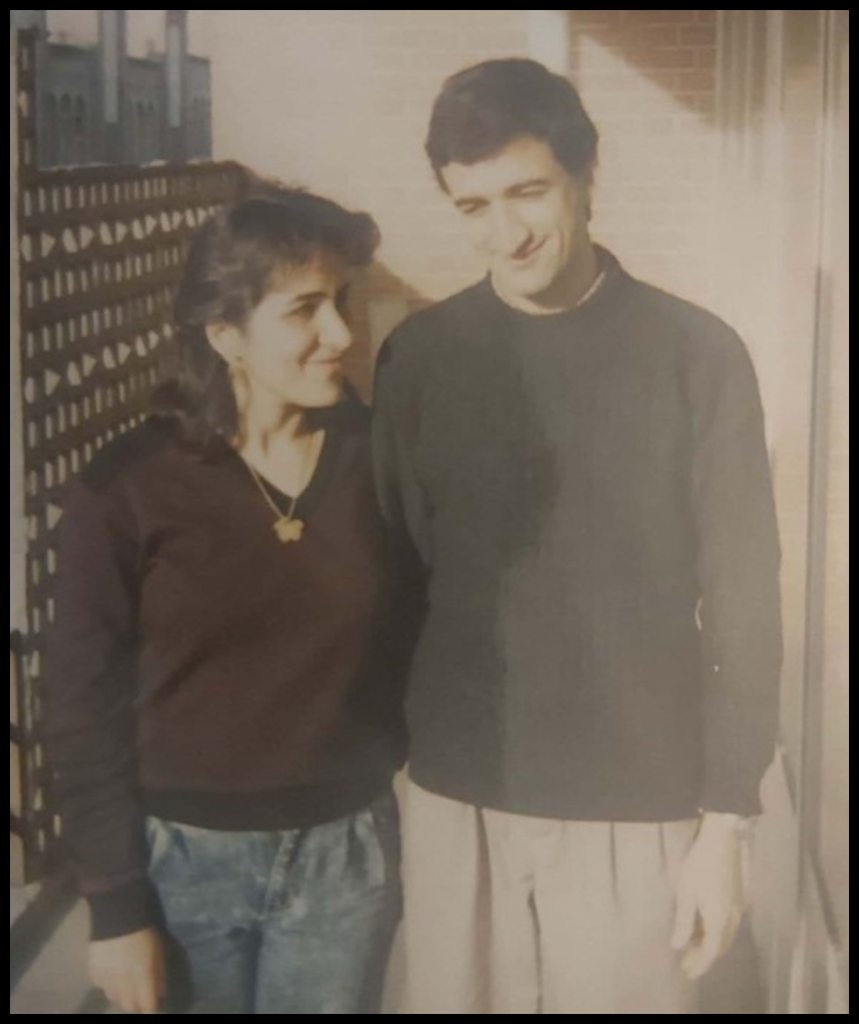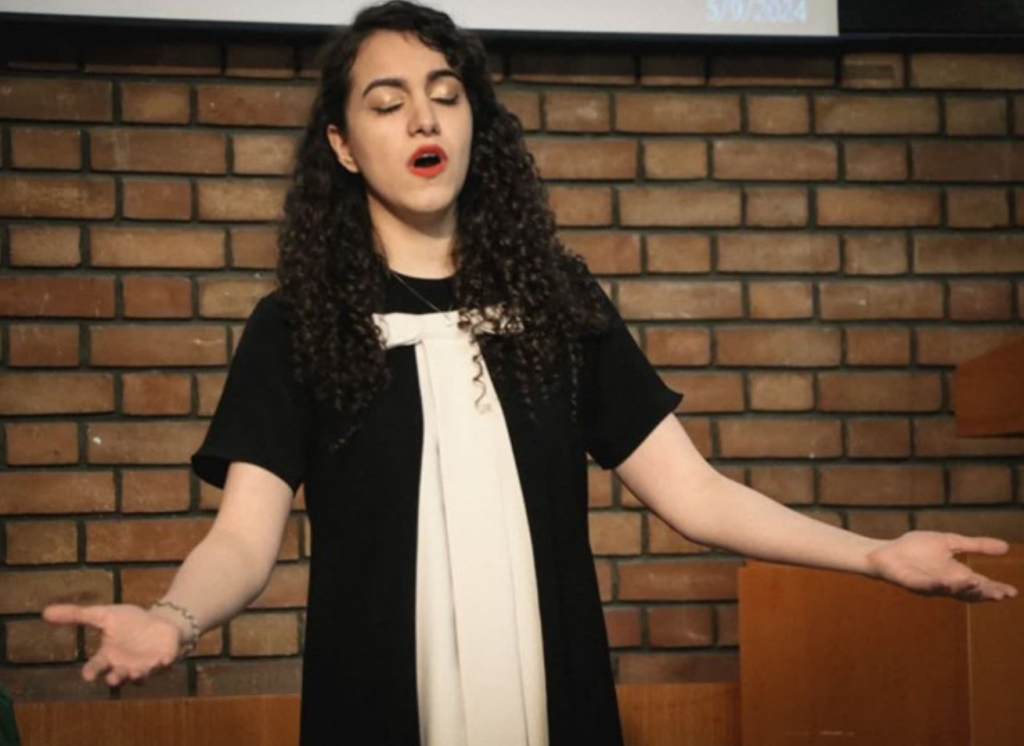Pooya Salehi is an Iranian poet and writer. He was born on August 16, 1992, in Yazd, one of the most historical, religious, and traditional cities in Iran. However, his parents come from a very different background. Both were imprisoned in the Islamic Republic’s prisons during their youth due to their leftist affiliations.

The Birth of a Writer:
Growing up in a city with a deeply religious atmosphere while being raised in an irreligious family profoundly influenced his perspectives. Listening to his parents’ painful memories of their time in prison exposed him to the realities of religious violence, while being surrounded by a religious environment helped him reconcile with the essence and ideals of religion. These contrasting situations created deep philosophical tension within him, which led him to turn to writing as a means of finding peace from a young age.
Tendency to Anarchism
It is evident that even in his teenage years, Salehi began distancing himself from the beliefs of his parents. Eventually, he abandoned all forms of ideology, adopting a perspective that leaned toward anarchism while retaining many aspects of spirituality and mysticism.
He writes the following in a note about his anarchist tendencies:
“I consider myself an anarchist thinker, in the sense that I seek to distance myself from rigid structures and norms imposed by dominant powers. However, this does not mean I advocate for chaos or disrespect moral codes. Rather, it’s a continuous, calm redefinition of norms and ethics in a way that moves human life toward greater peace. This is very different from lawlessness or immorality. In fact, such philosophical re-evaluation is a way to prevent lawlessness. True lawlessness arises when old norms fail to address complex modern realities, and those enforcing them resort to inhumane tactics.”
He holds the following view on the role of literature:
“From the perspective of anarchist philosophy, norms only remain stable through force imposed by governments or institutions. If this force is removed, those norms will naturally and gradually evolve. If not, society may face deep and unsolvable crises. Literature, in this view, has the role of putting humanity in a constant state of rethinking its core assumptions, not recycling outdated ones.”
Another cornerstone of Salehi’s philosophy is respect for traditional and familial values in a traditional and Muslim society. From his perspective, modernity does not mean the elimination of religion or spirituality. Instead, it is about finding a way to peacefully reconcile different, and sometimes contradictory, ideas, each of which holds significant value in its own context.

Perspective on suffering.
The concept of suffering, particularly through the lens of his parents’ memories of imprisonment, led him to deeply value the philosophy of suffering.
In the religious beliefs of many traditions, suffering—when accepted without giving rise to hatred or revenge—leads to the forgiveness of sins and fosters compassion with those who have endured pain.
In his view, hearing the painful memories of his family, along with the sanctity placed on suffering, profoundly shaped his philosophical inclinations.
In his interpretation, every human being must take on humanity’s sins, seeing oneself as truly guilty—not as an assertion of prideful innocence, but as an embrace of guilt, even toward those who inflicted suffering on them.

In his perspective, despite his parents’ outward irreligiousness, their ability to patiently forgive others even those who had imprisoned and tortured them – and to love them compassionately stemmed from their belief that they were fallible and guilty human beings who had no right to judge others, even criminals. This reflects Salehi’s interpretation of Jesus, who likely saw himself as a flawed human and refrained from judging or hating others, even his killers.
His sister and her effect on the Pooya
Pooya shares his literary journey with the supportive encouragement of his sister who is 3 years younger than him. Some parts of his debut novel, ‘The Gravestone with Identical Dates’ are inspired by her. His sister studied dentistry and works as a dentist.
Like Pooya, she has chosen art alongside her profession. She is a classical vocal instructor in Iran and an underground singer. As a soloist, she has performed numerous Western classical pieces in various underground venues across Tehran.

Current Position
Pooya Salehi currently works in Yazd as a mechanical engineer at a railway company. Due to the lack of promising financial prospects in the fields of literature and philosophy, he pursued his studies in mechanical engineering in AmirKabir University and K. N. Toosi University. He began his doctoral studies at Tarbiat Modares University in October 2019 but left them unfinished. Regarding his personal life, the cultural and philosophical contrast between his work environment and emotional experiences with the natural rhythm of his life became a turning point for him. The themes of alienation, and loneliness can be found in many of his works.
